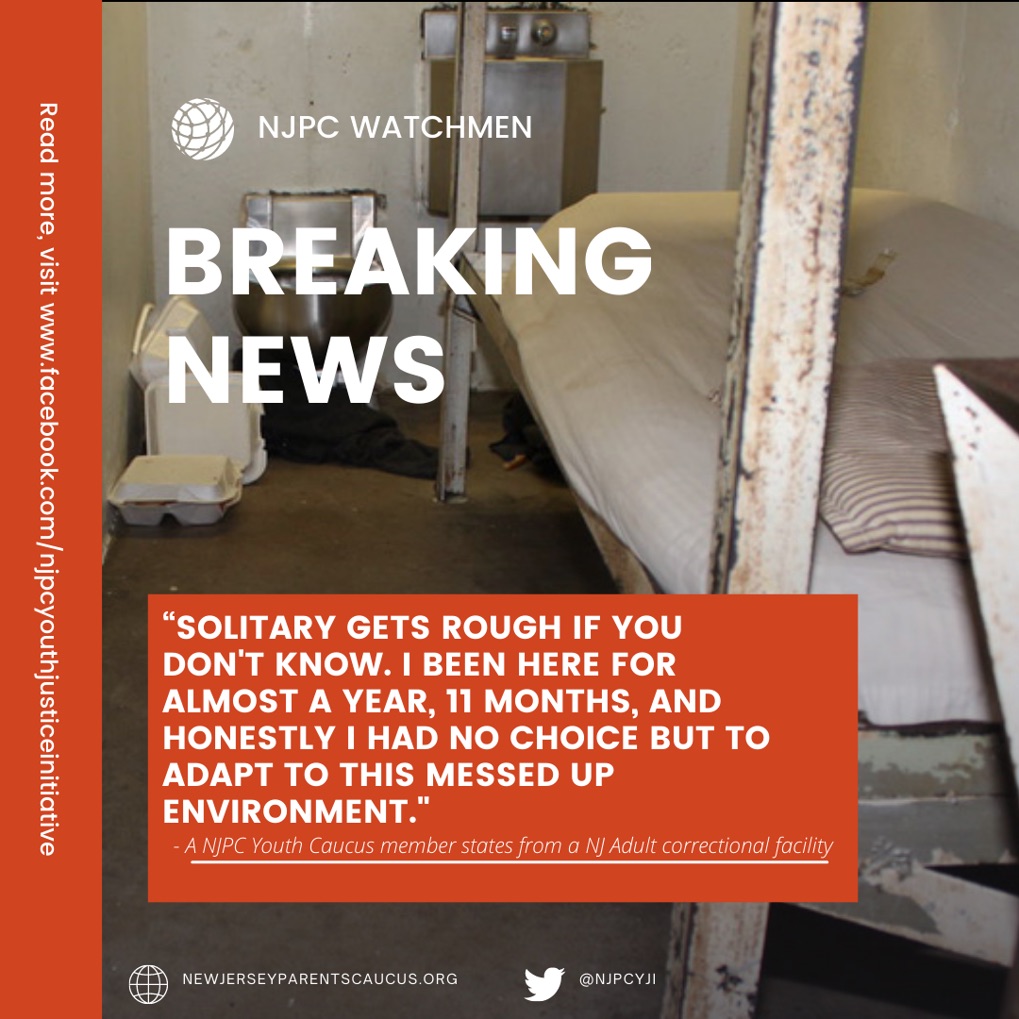NJPC Watchman- A Community Talk - October 2022
Jonathan, one of our youth caucus members, has been in an adult correctional facility since the age of 17. He is under the age of 21 and has three mental health diagnoses but has been in isolated confinement for the past 11 months.
He describes the inhumane living conditions stating, “Solitary gets rough if you don't know. I been here for almost a year, 11 months, and honestly, I had no choice but to adapt to this messed up environment.
The rooms are basically falling apart, mice and unknown bugs are everywhere and it's just unfair to have us locked away for 23 hours of the day every day with these insects and rodents. I only get to talk to my family once a week and I am only allowed to shower every 3 days, and my mom is only to see me through a window when she visits. Solitary is awful.”
Isolated confinement, also known as solitary confinement, restricted housing, or Adseg has been an inhumane practice in correctional facilities for decades. It involves physical isolation, meaning that an inmate has no interaction with others and is confined to their cell for 23 or in some cases 23 ½ hours a day. In 2019, the Isolated Confinement Restriction Act, also known as P.L 2019, was created to restrict the use of isolated confinement. P.L 2019 does the following:
1. Prohibits individuals who are under the age of 21, over the age of 65, individuals with disabilities, pregnant women, and LGBTQ individuals from being placed in isolated confinement except in rare, specified circumstances.
2. Prohibits the use of isolated confinement unless there is reasonable cause to believe the inmate or others are at substantial risk of serious harm as evidenced by recent threats or conduct, and less restrictive intervention would be insufficient to reduce the risk.
3. Prohibits the placement of an inmate in isolated confinement for more than 20 consecutive days, or for more than 30 days during any 60-day period.
4. States that cells used for isolated confinement must be properly ventilated, temperature-controlled, clean, and equipped with properly functioning sanitary fixtures.
5. A clinical staff must evaluate each inmate placed in isolated confinement on a daily basis to determine whether the individual is a member of a vulnerable population. If the inmate is determined as a member of a vulnerable population, the individual should be immediately removed from isolated confinement.
There is a disconnect between what P.L 2019 states, and the practices in New Jersey correctional facilities. Jonathan, one of our youth caucus members, has been in an adult correctional facility since the age of 17. He is under the age of 21 and has three mental health diagnoses but has been in isolated confinement for the past 11 months.
He describes the inhumane living conditions stating, “Solitary gets rough if you don't know. I been here for almost a year, 11 months, and honestly, I had no choice but to adapt to this messed up environment.
The rooms are basically falling apart, mice and unknown bugs are everywhere and it's just unfair to have us locked away for 23 hours of the day every day with these insects and rodents. I only get to talk to my family once a week and I am only allowed to shower every 3 days, and my mom is only to see me through a window when she visits. Solitary is awful.”


Leave a Reply